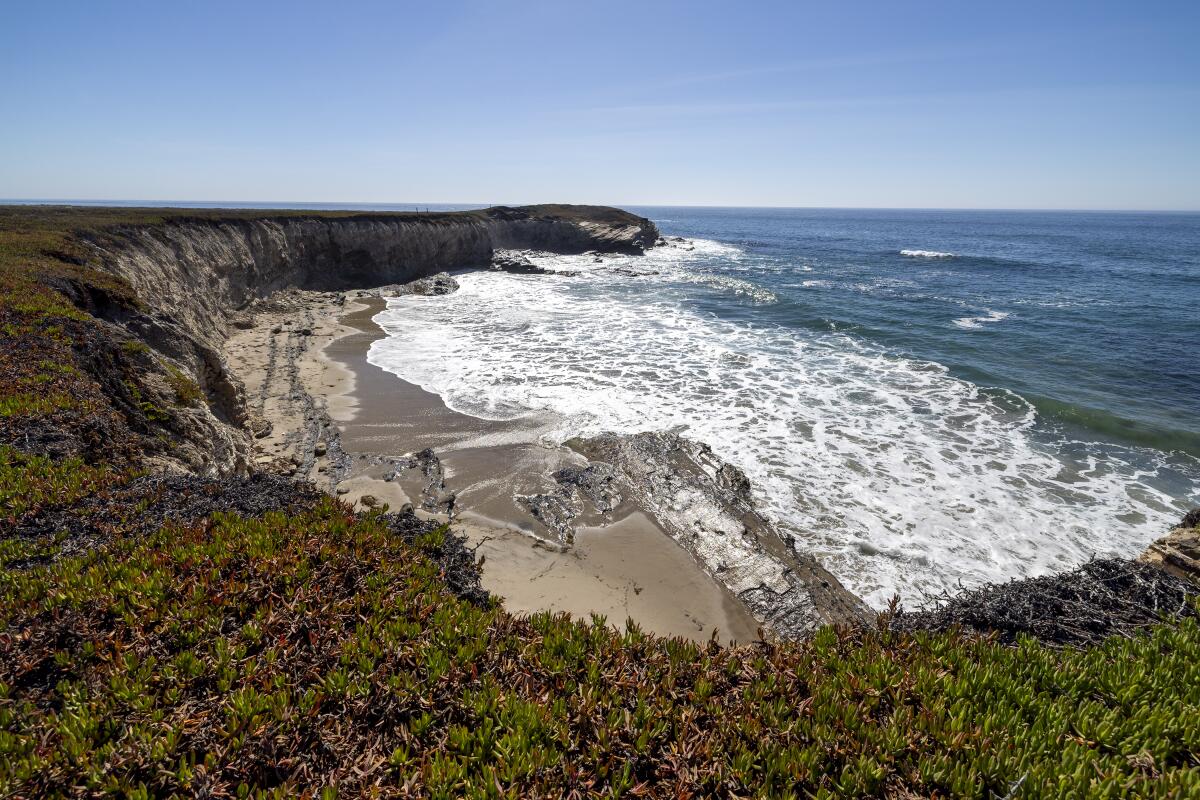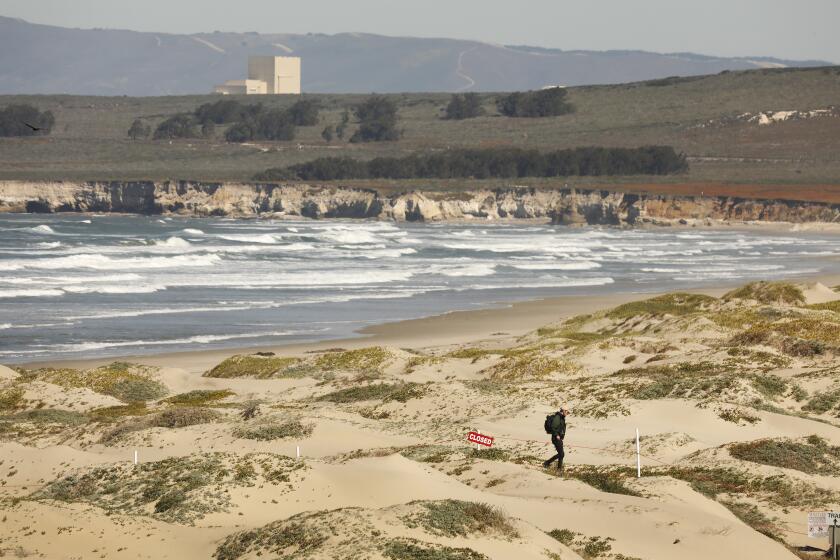Stretch of the Central California coast is about to be designated a marine sanctuary. What does that mean?

- Share via
A stretch of land that is expected to be designated as a national marine sanctuary by next year would preserve more than 5,000 square miles of ocean off California’s Central Coast.
It was the dream of a Native American tribal leader who died before he could see it come to fruition.
The proposed Chumash Heritage National Marine Sanctuary is not yet finalized, and the public can submit comments on the draft proposal through Wednesday. The sanctuary would span 134 miles along the coast from Hazard Canyon Reef, south of Morro Bay, to just south of Dos Pueblos Canyon, which is home to one of the largest historical Chumash villages. The designation would protect a 5,617-square-mile area.
The designation would prohibit dumping matter into the sanctuary, disturbing cultural resources, drilling or producing oil, gas or minerals, and disturbing the seabed, according to the National Oceanic and Atmospheric Administration.
The NOAA is hoping to finalize a sanctuary designation by next year, which would add to the agency’s marine sanctuary system that already includes “more than 620,000 square miles of marine and Great Lakes waters from Washington state to the Florida Keys,” according to its website. The network encompasses 15 national marine sanctuaries.
A plan to float wind power turbines in waters off Santa Barbara County has struck opposition from a Native American tribe and environmentalists.
President Biden has endorsed the proposal as part of his America the Beautiful Initiative, which includes a goal to restore and conserve 30% of U.S. waters and land by 2030.
The proposed Chumash Heritage National Marine Sanctuary would also protect marine life and cultural and archaeological sites under the National Marine Sanctuaries Act. Regulations would be imposed to protect water quality, habitat and species. The sanctuary would also protect the ecological qualities of the area including marine mammals, birds, fish, sea turtles, algae and other organisms, as well as rocky reefs, kelp forests and beaches.
Fred Harvey Collins, the chair of the Northern Chumash Tribal Council and an ardent advocate for the protection of sacred Northern Chumash lands, submitted the nomination for the creation of the sanctuary, with the support of Rep. Salud Carbajal (D-Santa Barbara) and Sens. Dianne Feinstein and Alex Padilla (both D-Calif.). He died on Oct. 1, 2021.
NOAA’s Office of National Marine Sanctuaries issued a notice of intent to begin the designation process for the sanctuary in November 2021.
The draft management plan outlines a framework for Indigenous and tribal collaborative management, providing an opportunity to incorporate Indigenous people’s traditions, values and knowledge.
More to Read
Sign up for Essential California
The most important California stories and recommendations in your inbox every morning.
You may occasionally receive promotional content from the Los Angeles Times.















